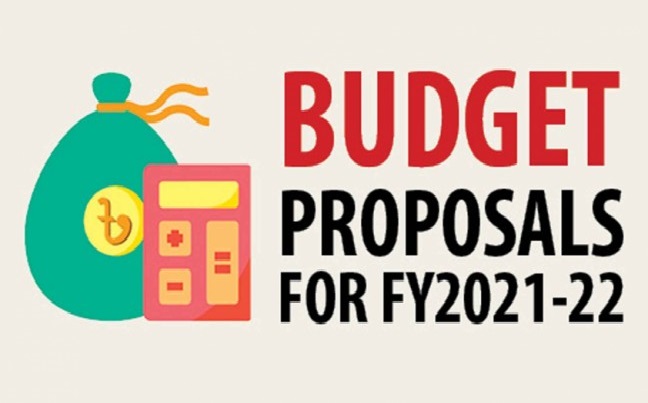But he cannot dwell on the historic moment as the nation is eagerly awaiting to find out what he delivers amid a pandemic that just won't go away.
For all latest news, follow The Daily Star's Google News channel.
External challenges involving exports and internal challenges involving the ongoing more virulent second wave, threats of further waves, uncertainty about the availability of coronavirus vaccines, and high level of poverty and unemployment are enough to give him sleepless nights in the days leading up to his budget speech in the national parliament.
Kamal is expected to announce a Tk 603,681 crore budget for the fiscal year beginning July 1.
The revenue collection target for the National Board of Revenue would be Tk 330,000 crore, a realistic goal under the current circumstances and at the current pace of tax collection.
There was almost nothing for the new poor, who may number at least one crore, in the outgoing fiscal year.
On and off lockdowns are hurting the economy. Businesses are struggling to stay afloat. Incomes did not return to the pre-pandemic level. Jobs have dried up.
He has to devise ways to support the informal sector, which employs 85 percent of the workforce and starving of funds.
The finance minister would aim to limit the budget deficit at 6.2 percent of the gross domestic product (GDP), slightly up from 6.1 percent in the current fiscal year.
The new deficit target would allow him to spend an additional Tk 30,000 crore. Several economists have called for an even higher budget deficit.
The additional funds will pay off because the mass inoculation, when it begins in full swing, will help the economy spring back to pre-pandemic levels. These expenses are nothing if compared with the loss in economic output, lives and livelihoods.
The government did nothing for the cottage, micro, small and medium enterprises (CMSMEs), which are the backbone of the economy and provide most jobs, until recently. If the CMSMEs are given loans, the interest rate has to be very generous.
The employment sector poses the biggest challenge. Millions of people had lost jobs. Many have returned to jobs. Those who have not lost jobs have seen their income slashed.
The decline in incomes has directly hit the consumption of families. So, raising domestic consumption is of paramount importance.
Luckily, there are many silver linings for the finance minister.
There has been price stability. Macroeconomic fundamentals are still good. The exchange rate is stable. Exports are moderate. Remittance receipts are galloping.
Revenue income has not fallen as many had thought. Foreign reserves have reached record heights. Foreign aid reached a record level.
The World Bank has lined up $500 million to support the poor, revive the economy and vaccinate the nation. The Asian Development Bank is readying $940 million in similar assistance.
So, the finance minister is not constrained by a lack of funds. It is the lack of political will of the government or complacence, if there is any, that may fail him.
Money sometimes can't buy everything. This time, it is the vaccine. About 2 percent of the population of Bangladesh have been vaccinated so far. Getting more jabs are uncertain as global supply is inadequate.
If the Indian variety of the coronavirus, which spreads fast, causes deep community transmission, Bangladesh will be facing a sheer catastrophe.
Hospitals are simply not ready and don't have the capacity. Not learning from one's as well as others' mistakes can prove costly.
Bangladesh may not afford to provide the cash support in the manner that the US or other rich countries have extended towards the vulnerable segments of their societies. But it can do more, not just for 35 lakh families for two months but crores of others.
It is high time to make the investment in the health and education sectors and design them in a way that serves the country in the many years to come, not just the immediate needs.
The pandemic has undeniably accelerated the digital transformation. The government has to seize the opportunity. Telecommunication is one of the most productive sectors yet one of the most taxed.
The government has taken broadband connectivity up to the upazila level. But the internet cost is still high. The same is true with the price of digital devices. So, one cannot expect to teach students online under the present circumstances.
Save for government employees, the day labourers, street vendors, the low-income groups and the CMSMEs either saw their jobs wipe out or income hit rock-bottom. Income-generating activities have to be given a boost.














